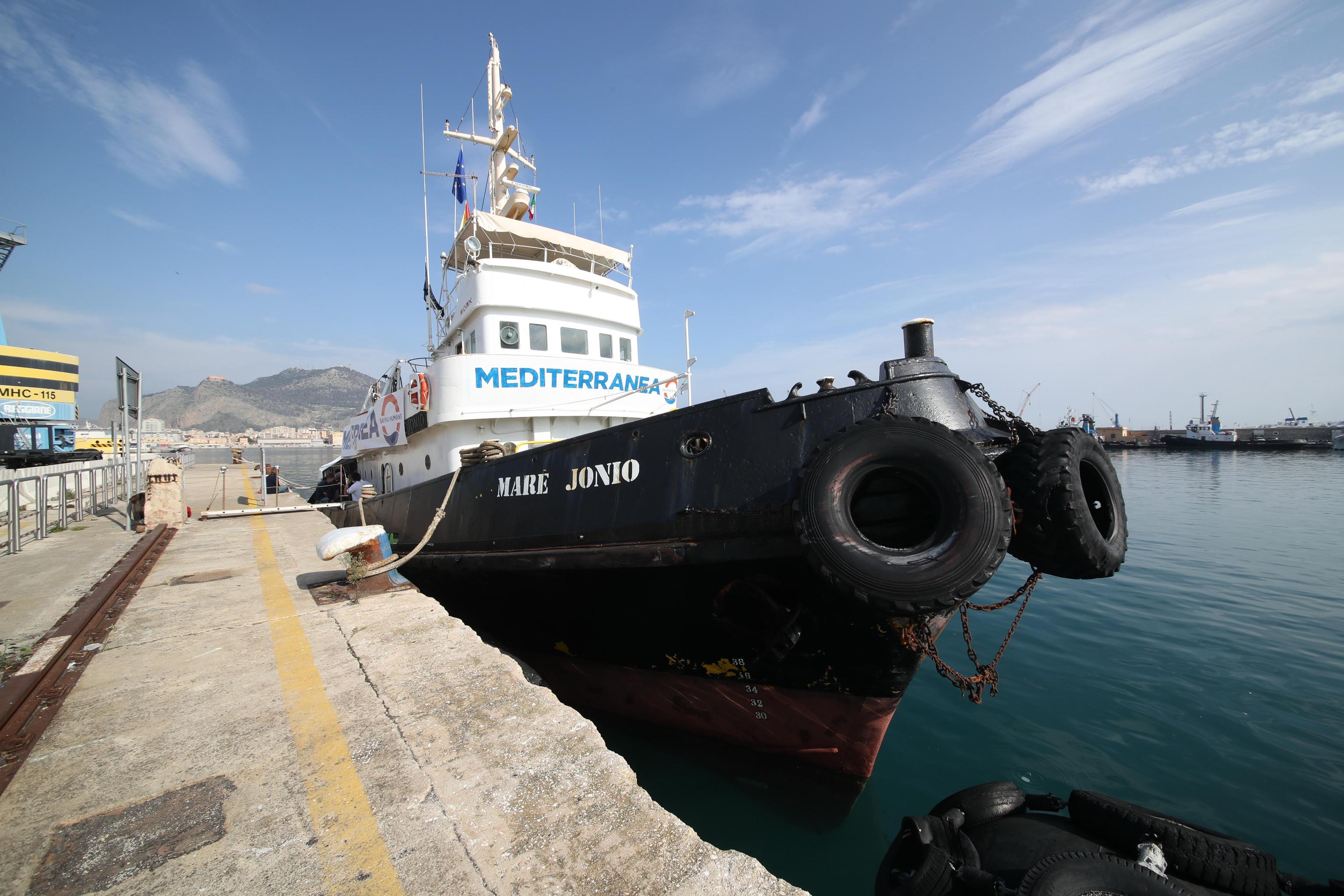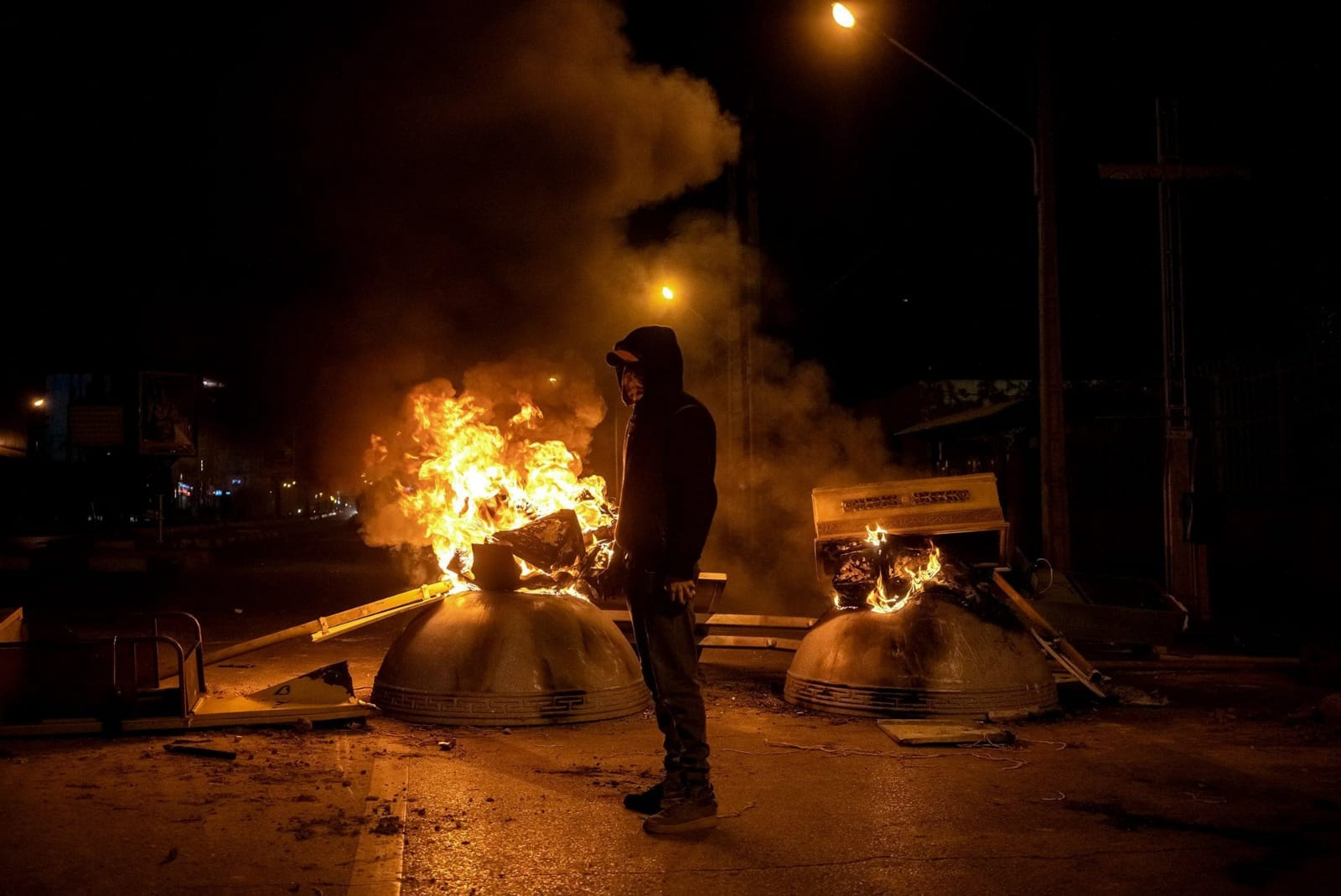by Sandro Mezzadra
Liberté, liberté! This chant – belted out by 49 refugees and migrants in the moment of their landing at Lampedusa last Tuesday – contains the real meaning of what has happened around the Mare Jonio over the last few days, Mediterranea‘s ship. And this is the cry that narrates the drama of what is happening on a daily basis – not only in the Mediterranean Sea but also on land, lands crossed by men and women fleeing towards the southern side of the sea, for it is a drive for freedom that pushes the movement of migrants, a drive as basic as it is powerful. Tools of control swarm around them, attempting to contain this drive and frequently negating it with tragic results, from the most sophisticated (radars and other technologies for surveying space and intercepting bodies in motion) to the most rudimentary and violent: the whip and other methods of torture in the hands of the of the Libyan concentration camps’ guards.
The Mare Jonio is currently blocked at Lampedusa, impounded under ‘investigative seizure’ ordered by the customs police and ratified by the public prosecutor in Agrigento, Sicily. The ship put itself into this conflict, it opened up a gateway for the migrants’ yearning for freedom. It is a small gateway, there can be no doubt. To understand this, we need only reflect upon the fact that in the very same hours in which the rescue was carried out, another rubber boat in the central Mediterranean Sea was going under, with thirty people either dead or missing. And yet it is an important gateway, one that has saved the lives of 49 people and broken the infernal circuit on which the “traffickers” are thriving, that circuit by which the migrants themselves, once they have undertaken the journey across the Mediterranean, are forcibly brought back to detention centres by the so-called Libyan Coast Guard – only to be re-inserted into the business of “human trafficking”. This self-contained circuit, based on complicity from the Libyan authorities which has been well documented, is the engine facilitating the traffickers. Those who support it, such as the Italian government, are the real collaborators. Not ‘Mediterranea’ or other NGOs such as ‘Sea Watch’ and ‘Open Arms’, who on the contrary are working to break this circuit and free men and women from the stocks – both literally and metaphorically.
One of the 49 migrants rescued by the Mare Jonio said that they attempted the crossing five times. It is this stubbornness that characterises the search for freedom being played out in the Mediterranean Sea, all too frequently as tragedy. This chorus, Liberté! liberté!, cannot but involve us on a profound level. It ought resonate with the streets that have been filled with demonstrations over this last month, demonstrations against racism, against climate change, for women’s freedom. When the customs police told him to turn off the engines with two-metre-high waves threatening the ship’s stability, the fisherman Pietro Marrone, Commander of the Mare Jonio (now under investigation), replied “I will not switch off the engine”. Those words are an example of dignity and responsibility, and for us they have a more general meaning as well: in response to every act of criminalisation, we will turn on and multiply the engines of solidarity, we will take on a collective practice of building the material bases for a new freedom, that freedom to which the migrants’ chant on Lampedusa calls us.
The Mare Jonio is currently under “investigative seizure”. The ship is blocked in port at Lampedusa, no longer able to carry out the mission of monitoring and rescue for which it has been equipped. Matteo Salvini, clearly outflanked by a ship waving an Italian flag and the coincidence of the Monday’s rescue with the Senate debate on the Diciotti case, is claiming victory. He is celebrating a sea void of any independent presence, in which shipwrecks happen in silence and the so-called Libyan Coast Guard can carry out collective push-backs. In this context, the Mare Jonio becomes a symbol of humanity and freedom, of dignity and responsibility. Free the Mare Jonio, let us switch its engines on and return to where it needs to be – these are the words around which we need to mobilise, that which the feminist movement calls a “state of permanent agitation”.
Published in il manifesto 22nd March 2019.





